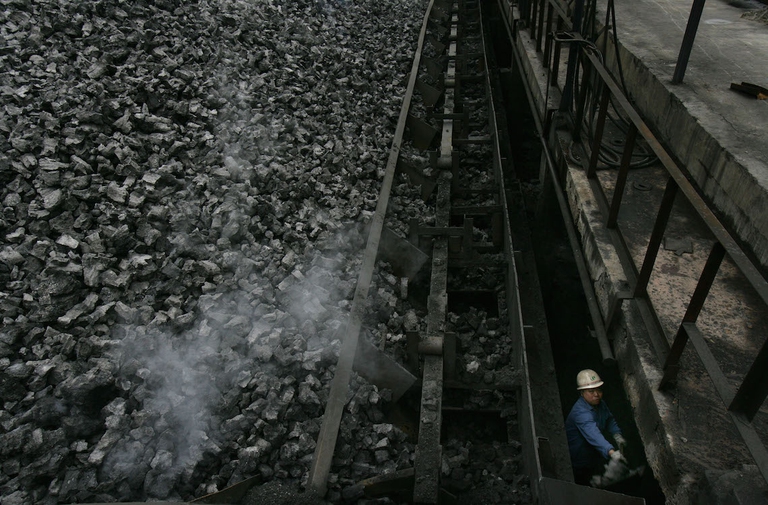
The 26th edition of the United Nations Climate Change Conference, COP26, will be held in Glasgow, Scotland in November 2020. The pre-COP will take place in Milan, Italy.
Il New York Times rivela i nuovi dati ufficiali di Pechino: il carbone utilizzato è almeno il 17 per cento in più di quanto affermato in precedenza.
China, the world’s major emitter of greenhouse gases from coal, significantly underestimated the amount of coal used as energy source in its territory. A New York Times’ investigative report has revealed the data recently published by Beijing’s government in an energy statistics yearbook (which didn’t receive particular media attention).
According to the Asian economic giant, the amount of coal burnt every year since 2000 has been significantly higher than estimated: on average, 17% more. In terms of increase in CO2 emissions, China has produced about 1 billion tonnes of CO2 more annually. “Even for a country of China’s size, the scale of the correction is immense,” comments the US newspaper. In order to better understand the situation, just consider that such calculation error corresponds to the annual emissions of Germany, the first European economy.
The revisions have been carried out due to a “census of the economy” carried out by the Chinese government in 2013, which shown gaps in data collection. In particular, according to Ayaka Jones, analyst at the United States Energy Information Administration, the new data indicated that much of the change came from heavy industry, including cement factories and steel plants. Therefore, in 2012 alone, the new figures add about 600 million tons to China’s coal consumption (i.e. 70% of the total coal used annually in the United States).
The New York Times also reports that the announcement could further mess up the negotiations to be held during the next UN Climate Change Conference, COP21. China’s government, ahead of the event, did not promise a decrease in emissions, but a “maximum peak”, which is likely to be reached by 2030.
According to Yang Fuquiang, former energy official in China, “this will have a big impact, because China has been burning so much more coal than we believed. It turns out that it was an even bigger emitter than we imagined. This helps to explain why China’s air quality is so poor, and that will make it easier to get national leaders to take this seriously”. Moreover, according to Lin Boqiang, director of the China Center for Energy Economics Research at Xiamen University in eastern China, said that “the international agencies will also have to adjust their databases. This is troublesome because many forecasts and commitments were based on the previous data”.
Siamo anche su WhatsApp. Segui il canale ufficiale LifeGate per restare aggiornata, aggiornato sulle ultime notizie e sulle nostre attività.
![]()
Quest'opera è distribuita con Licenza Creative Commons Attribuzione - Non commerciale - Non opere derivate 4.0 Internazionale.
The 26th edition of the United Nations Climate Change Conference, COP26, will be held in Glasgow, Scotland in November 2020. The pre-COP will take place in Milan, Italy.
Thanks to activists, the voice of the world’s peoples resounded through the COP25 like an alarm bell. Governments didn’t reach the results they demanded, but their cries and messages were stronger than ever, reaching even those who weren’t in Madrid.
Climate change poses a risk for millions. However, women are the most vulnerable to its negative consequences: a few simple considerations by the Italian Climate Network help us perceive the global implications of this.
The COP25 ended two days late and with very few steps ahead made. Climate negotiations in 2020 will be an uphill battle as political will clearly seems to be lacking, once again.
The last ten years have been the most “exceptional” and hottest decade ever, with extreme weather hitting people and ecosystems harder and more frequently. 2019 is also on course to becoming the second or third hottest year since records began.
Unite Behind the Science: this was the title of the conference held at the COP25 on 10 December. Greta Thunberg’s presence filled the arena, but this time it was scientists’ turn to speak.
25,000 delegates meet for the COP25 from 2 to 13 December. What can we hope this UN climate change conference, whose venue was changed from Santiago de Chile to Madrid, will achieve?
100 eminent people from all over the world, including Vandana Shiva, Naomi Klein and Noam Chomsky, have signed an open letter after the disappointing results of the COP24. A call-to-arms for climate against world leaders’ indifference.
The outcome of the COP24 in Katowice left many unsatisfied. Greta Thunberg, a young Swedish environmental activist, gave a harsh, heartfelt speech addressing world leaders.









